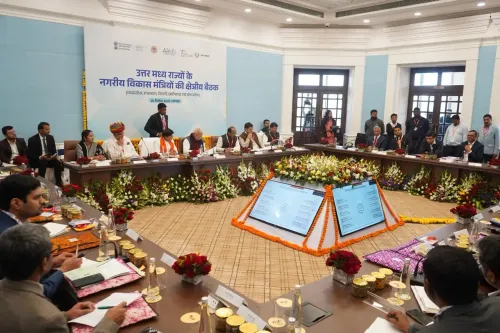Waqf (Amendment) Act 2025 Enforced, Gazette Notification Issued by Centre

Synopsis
Key Takeaways
- Waqf (Amendment) Act, 2025 officially enacted
- Introduces significant reforms for Waqf properties
- Establishes a centralized online portal for transparency
- Opposition parties criticize the legislation
- Legal challenges filed in Supreme Court
New Delhi, April 8 (NationPress) The Waqf (Amendment) Act, 2025, officially became effective on Tuesday following a Gazette notification released by the Central Government.
The Act received the approval of President Droupadi Murmu on Sunday, just two days after its passage in Parliament.
“In exercise of the powers conferred by sub-section (2) of section 1 of the Waqf (Amendment) Act, 2025 (14 of 2025), the Central Government hereby appoints the 8th day of April, 2025 as the date on which the provisions of the said Act shall come into force,” stated the official notification published in the Gazette of India.
The legislation, which modifies crucial provisions of the original Waqf Act, has introduced a range of notable reforms. These comprise the separation of trusts from Waqf entities; the introduction of digital and technological solutions for property management; the establishment of a centralized online portal for enhanced transparency; restricting Waqf property dedication to practicing Muslims only; safeguarding 'Waqf by User' properties historically utilized by the community; and acknowledging women's rights within family Waqf, among others.
The Bill was passed in the Rajya Sabha in the early morning hours of Friday, April 4, after an extensive 17-hour debate. The Lok Sabha had approved the Bill earlier that week.
Prime Minister Narendra Modi characterized the passage of the legislation as a “watershed moment” in India's endeavors to reform and modernize the management of Waqf properties.
According to the government, the amended Act is designed to enhance transparency and accountability in the administration of Waqf properties and ensure fair representation of all Muslim communities within the functioning of Waqf Boards.
However, the law has faced substantial opposition from various political parties. Opposition leaders have accused the government of utilizing the legislation to advance a divisive agenda.
In reaction to the Act’s implementation, several Public Interest Litigations (PILs) have been lodged in the Supreme Court contesting its constitutional validity.
Anticipating legal challenges, the Centre has filed a caveat in the apex court, requesting that no orders be issued without considering its perspective.










